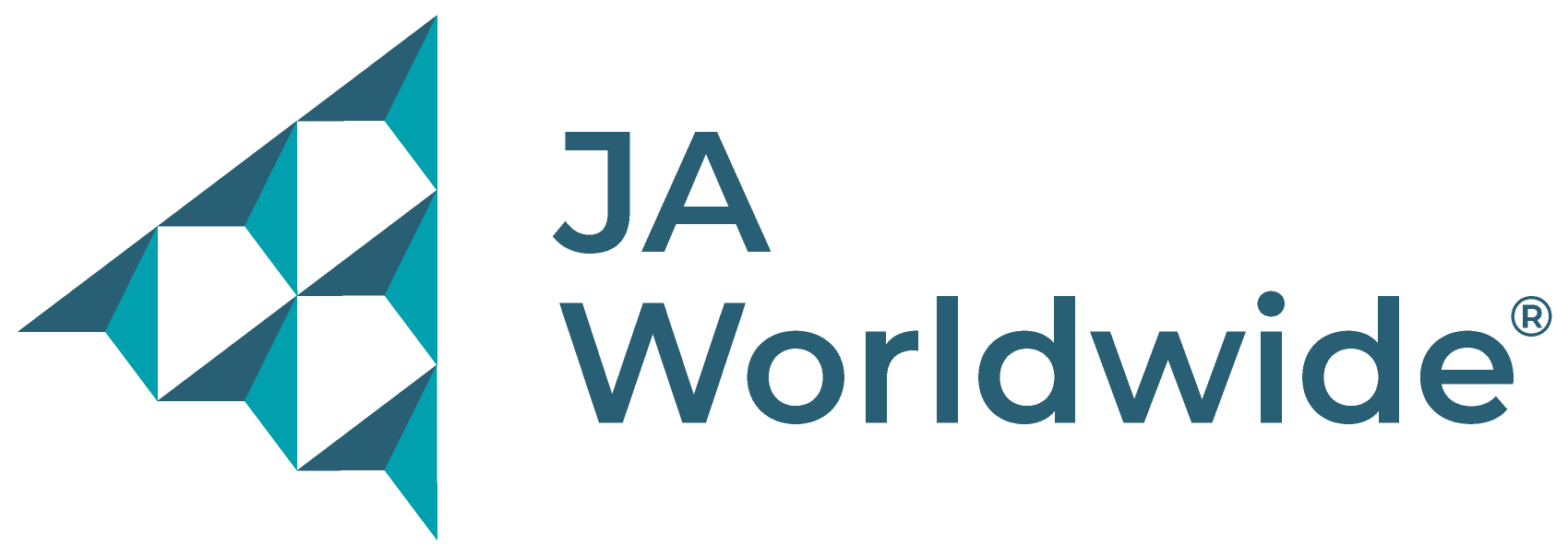Team Balda Taiba
INJAZ Yemen navigated checkpoints, impassible roads, and war-ravaged cities to bring a student team to MENA’s top youth-entrepreneurship competition in Oman
When Majid Al-Shammiri first heard that the INJAZ Al-Arab Young Entrepreneurs Celebration (YEC) would be held in Oman, he knew it was the closest the competition would ever come to his home country. In better days, the trip was a three-hour flight. But traveling from Sana’a, Yemen, to Muscat, Oman, would require three solid days of travel, mostly by car, as Majid, the student team, and their mentor circled well around the country’s most dangerous roads and checkpoints.
Yemen, currently ranked as the most dangerous place on earth, has been engaged in a civil war for more than six years. Yet INJAZ Yemen, which operates out of a modest location in the capital city, served 28,000 students in 2020, thanks to a small but dedicated group of employees and volunteers.
Majid’s Story
Born in Taiz, Yemen, Majid moved to Sana’a with his family when he was seven years old. By the time he finished high school, he had come to love the 7,000-year-old city, full as it was then of shops and cafes, and home to Sana’a University.
Majid’s last year of university, 2011, also marked the famous Arab Spring, and Yemen was one of the first countries to experience the exhilarating—and destabilizing—protests, following the first uprisings in Tunisia and Egypt. After a mostly peaceful few months of political turmoil, Yemen began 2012 with a new president and a renewed hope in democracy.
That was also the year that Majid was offered the opportunity to relaunch JA operations in Yemen. He had other job offers but wanted to bring JA’s hands-on programs to his home country. Success quickly followed: In both 2012 and 2013, INJAZ Yemen made impressive showings at the YEC. But conditions within the country steadily worsened until a civil war erupted in late 2014.
A Country at War
At first, Majid and his countrymen were hopeful that a peace agreement would quell the violence. But that lasted only a few months. By the end of 2015, the INJAZ location suffered damage during an airstrike, and Majid considered, for the first time, shutting down the operation.
But his students simply wouldn’t let him give up. Keenly aware of how much they need the skills to prepare them for employment and entrepreneurship, INJAZ Yemen students insisted on taking the risk and continuing to learn.
The new building allocated to them was undamaged but far from a home for staff, volunteers, and students, creating challenges due to gasoline shortages and increasingly frequent checkpoints. These factors also increased the challenges that Majid and his staff and students faced, especially when traveling. For the INJAZ Yemen Company of the Year team (called Balda Taiba) to travel to Oman in the middle of a civil war now seemed a remote possibility.
In late 2019, after Majid negotiated for months to secure passports and visas for his students, Team Balda Taiba set off for Oman on a warm Wednesday afternoon. The first part of the journey, from Sana’a to Marib, had been a two-hour car ride in pre-war days. But it took the INJAZ Yemen team 14 hours, as they were forced to travel on a secluded mountain road that avoided checkpoints and other dangers.
From Marib to Seiyun was another eight hours in the car. From Seiyun to the Oman border took another 14 hours, this time through the desert, finally arriving at 6am on Saturday. The team had been on the road for two and a half days, with just seven hours of breaks.
Once in Oman, they traveled by car to Salalah, slept for a few hours, and then boarded a plane to Muscat, arriving late Saturday night. The competition would begin the next morning. They had made it.
Coffee, Camaraderie, and Competition
The INJAZ Al-Arab YEC is a well-oiled machine. In addition to presentations and interviews with judges, each team is assigned a trade-show booth, which they arrange in whatever way they believe will elicit the best response from judges. For Team Balda Taiba—all students at Sana’a University—the theme was coffee, the product that the company processes, infuses with local flavors, and sells, along with other hot beverages. At the trade show, the team set up carafes Judges and other VIPs who visited the team’s trade booth received a hot, spicy sample beverage, and then were pitched on its unique flavor, its affordable cost, and how there was no doubt that Yemen produces the finest coffee in the world.
““Our work is to open the minds of the youth of Yemen. For they will lead the way.””
When one visitor, a native of Brazil, stopped by, suggesting that, perhaps, Brazilian coffee—not Yemenese—was the best in the world, a member of Team Balda Taiba laughed out loud, and said, “Oh, you Brazilians. Just like the Kenyans. You always think you have the best. But wait until you taste the real thing!”
She was right. The judges thought so, too, and on the last day of the YEC, Team Balda Taiba was awarded the prestigious Citi Foundation Client Focus Award, a coup for the team and their mentor, Mr. Ibrahim Al-Isti, as well as for Majid and his staff. Suddenly, the 50+ hours of dangerous travel seemed worthwhile.
Two Yemens
The sheer joy of the team as they rushed across the stage to receive the award is, perhaps, the most illustrative contrast between the Yemen described in international news stories and the Yemen that Majid experiences every day. One is a story of suffering and loss, ranging from extreme food insecurity to demolished city blocks to shortages of everything from gasoline to teachers. The other is a story of exuberance, resilience, and—most of all—hope.
But, as Majid would tell you, they’re the same Yemen. One reflects the present; the other, the future.





